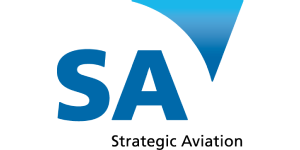The field of digital forensics and cybercrime investigation is expanding rapidly. The ability to develop software solutions to handle problems in these areas is of paramount importance in the continued success of these techniques in court proceedings. This course examines the means by which forensic tools are developed. Students will progress from basic programming, to the development of large-scale forensic solutions. As the ultimate aim of every case is its successful prosecution in a courtroom, students will see how the forensic tools are tested and validated using scientific methodologies, thus ensuring that any evidence acquired through the use of these tools will be admissible in court.
Entry Requirements
Students must complete an intake with recruitment team.
- Applicants must provide a valid photo ID or birth certificate
- Applicants must hold a high school diploma or be at least 19 years of age
- Students under the age of 19 require their parent or guardian’s signature
- Student must complete an intake with Admissions team member
Admission Requirements:
- Applicants must provide a valid photo ID or birth certificate
- Applicants must hold a high school diploma or be at least 19 years of age
- Students under the age of 19 require their parent or guardian’s signature
- Student must complete an intake with Admissions team member
Course Prerequisites
None
Course Duration
8 Weeks/ 48 hours
Cost
$850.00
Delivery Methods
Online| On-campus| Combined
Completion
Certificate
Learning Outcomes
Upon completion of this course the successful student will have reliably demonstrated the ability to:
Knowledge of:
- General programming concepts in both imperative and object-oriented paradigms
- Methods of forensic tool testing and validation
Skills to:
- Develop large-scale forensic applications
- Compare the performance of forensic tools
- Evaluate the validity of the results returned by forensic tools
- Perform professional tasks in the role of digital forensic investigator with increased insight and confidence
- See the role of digital forensics in a broader perspective during an investigation
- Identify ethical and legal issues during investigation
Student Progression And Reporting
Student will be assessed by daily attendance, assignments, and completion of in class activities.
| Classroom Decorum | 15% |
| Attendance | 15% |
| In-Class Activities & Participation | 10% |
| Quiz | 10% |
| Assignment | 30% |
| Final Exam | 20% |
Completion Requirements:
To successfully complete this course, students must:
- Pass the final exam
- Attend a minimum of 80% of the scheduled classes
- Achieve a minimum overall score of 50%
Course Schedule:
| Modules | Topics |
| 1 | What is Digital Forensics? |
| 2 | Cybercrime, Cyber Aided Crime and Digital Evidence |
| 3 | Computer Theory Notable Artifacts |
| 4 | Decryption and Password Enforcing |
| 5 | Collecting Evidence Analyzing Data and Writing Reports |
| 6 | Collecting Data Indexing and Searching Cracking |
| 7 | Finding Artifacts Some Common Questions |
| 8 | FTK Specifics Open Source or Freeware Tools |
| 9 | Memory Management Volatility |
| 10 | Memory Analysis in Criminal Investigations Malware Analysis |
| 11 | Review |
| 12 | Final Exam and wrap up. |
Tuition & Fees
| Details | International | Domestic |
|---|---|---|
| Tuition | $850 | $850 |










































